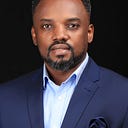It’s Time to Hear Voices of long COVID Across Africa
On October 10 2022, I was a panelist on a long COVID webinar hosted by Epidemic Ethics. Other panelists were Dr. Rachel Grob and Dr. Janet Diaz. It was chaired by Dr. Voo Teck Chuan. The title of the webinar was Long COVID: Minding the Gap Between Infection Disease and Chronic Condition.
What is long COVID or Post-COVID-19 Condition?
Source: WHO
Being the only African on the panel, I provided the African perspectives in general and Nigeria’s specifically.
Below is a breakdown of my presentation:
I started by acknowledging that the webinar fell on the 2022 #WorldMentalHealthDay. It is important because the mental health consequences of long COVID are debilitating and should be discussed.
As a public health physician and COVID-19 vaccination advocate, I always use long COVID as a reason for people to get vaccinated because it’s a trade-off. People need to make informed decisions. Long COVID is hardly spoken about as an important reason people should get vaccinated. Just like other public health physicians, I believe that prevention is better than cure.
Recently, I was a consultant to BBC Media Action on training of Radio journalists from 12 Nigerian states on increasing COVID-19 vaccine uptake in Nigeria. When I mentioned long COVID as a reason for people to get vaccinated, they hadn’t heard about long COVID. I was worried.
Watching ‘Voices of long COVID’ videos of sufferers sharing their stories is a powerful testimony to the devastating impacts of long COVID. ‘Voices of long COVID’ is produced by Resolve to Save Lives.
I’ve heard some clinicians in Nigeria say there are no long COVID cases in Nigeria. I think this is misleading because no one is measuring and documenting experiences of long COVID sufferers in Nigeria.
For instance, a colleague in Nigeria has lost her sense of smell for more than a year. Although she didn’t test for COVID but the loss in smell began after she had symptoms similar to COVID. Some of her associates also tested positive for COVID.
The African Union and Africa CDC are not doing much to amplify and document long COVID on the continent. Recently, Dr. Ahmed Ogwell Ouma, the Acting Director of the Africa CDC was interviewed by The Lancet. “Unfortunately, many people with long COVID do not return to health facilities but instead try to manage it from home, which makes it very difficult for us to have a clear picture of the incidence of long COVID across the continent.” , he said. He added that the African CDC will work towards better tracking of patients with long COVID across Africa to ensure the required medical care is provided.
While the plans of the Africa CDC are commendable, shouldn’t public health education on prevention of COVID, including reasons for COVID vaccination be inclusive of information on long COVID?
In Nigeria, there is a loud silence on long COVID by the Nigeria Centre for Disease Control (NCDC) and the National Primary Health Care Development Agency (NPHCDA).
In contrast, international surveys have not included African countries. This is inequitable and I dare say, unethical.
Source: Dr. Grob’s Slides
There is silence among mental health advocates in Nigeria to amplify mental health consequences of long COVID.
The mental health stigma in Nigeria is enough to dissuade long COVID sufferers with brain fog to even talk about it or seek care. The 2019 Mental Health in Nigeria Survey, which I co-led had shocking results. Seventy percent of more than 5,300 respondents interviewed across all Nigerian states said that, mental health disease is, when someone starts running around naked.
I ended by presentation by reminding all of the power of health education. I made reference to the quote on equity in health education by the University of Global Health Equity (UGHE), Rwanda — ”achieving equity in healthcare depends on achieving equity in health education”. I saw that quote as a mural in one of UGHE’s classroom when I attended an executive education course in 2019. I had to take a photo under the mural.
All stakeholders involved with COVID must improve their knowledge to include long COVID. When people are better informed, they can inform their clinicians of long COVID symptoms they are having and compare with information available from different sources. When clinicians are better informed of long COVID, they remind patients about long COVID, informing them of the symptoms and not to hesitate to bring those symptoms to the attention of clinicians when they visit the clinics. When policymakers are better informed, they can ensure long COVID becomes policy to care for sufferers and for funds to be budgeted appropriately. When legislators are better informed, laws are made to care for long COVID sufferers and their families.
Of equal importance to equity in health education is measuring and documenting long COVID across Africa. The African Union mounted a coordinated response to COVID-19. They should do same for long COVID. Further, international efforts to document voices of long COVID sufferers and measure incidence must include Africa — a continent of 1.2 billion people.
NGOs such as Covid Aid in the United Kingdom have important roles to play in providing support to those who suffer from long COVID.
I ended my presentation by acknowledging the statement by Dr. Diaz on the World Health Organization’s plan for long COVID — Recognition, Research and Rehabilitation. Across Africa, we must recognise that long COVID is a serious issue; measure the burden of long COVID; and provide care for long COVID sufferers.
Without a doubt, it is time to hear voices of long COVID across Africa.
